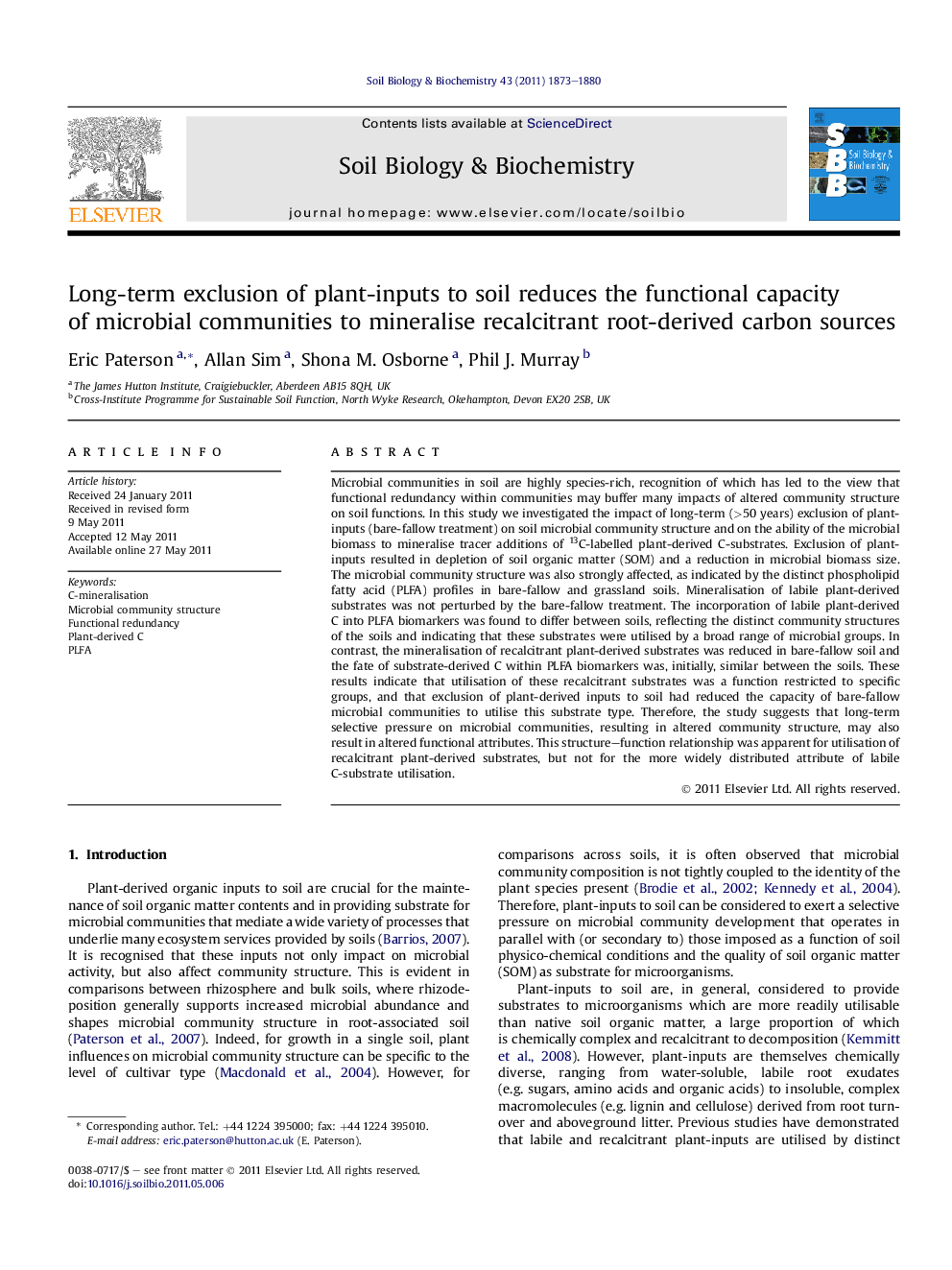| کد مقاله | کد نشریه | سال انتشار | مقاله انگلیسی | نسخه تمام متن |
|---|---|---|---|---|
| 2025246 | 1069989 | 2011 | 8 صفحه PDF | دانلود رایگان |

Microbial communities in soil are highly species-rich, recognition of which has led to the view that functional redundancy within communities may buffer many impacts of altered community structure on soil functions. In this study we investigated the impact of long-term (>50 years) exclusion of plant-inputs (bare-fallow treatment) on soil microbial community structure and on the ability of the microbial biomass to mineralise tracer additions of 13C-labelled plant-derived C-substrates. Exclusion of plant-inputs resulted in depletion of soil organic matter (SOM) and a reduction in microbial biomass size. The microbial community structure was also strongly affected, as indicated by the distinct phospholipid fatty acid (PLFA) profiles in bare-fallow and grassland soils. Mineralisation of labile plant-derived substrates was not perturbed by the bare-fallow treatment. The incorporation of labile plant-derived C into PLFA biomarkers was found to differ between soils, reflecting the distinct community structures of the soils and indicating that these substrates were utilised by a broad range of microbial groups. In contrast, the mineralisation of recalcitrant plant-derived substrates was reduced in bare-fallow soil and the fate of substrate-derived C within PLFA biomarkers was, initially, similar between the soils. These results indicate that utilisation of these recalcitrant substrates was a function restricted to specific groups, and that exclusion of plant-derived inputs to soil had reduced the capacity of bare-fallow microbial communities to utilise this substrate type. Therefore, the study suggests that long-term selective pressure on microbial communities, resulting in altered community structure, may also result in altered functional attributes. This structure–function relationship was apparent for utilisation of recalcitrant plant-derived substrates, but not for the more widely distributed attribute of labile C-substrate utilisation.
► Impact of long-term exclusion of plant-inputs to soil.
► Significantly reduced microbial biomass and altered community structure.
► Utilisation of labile substrates was not impaired by plant-exclusion.
► Plant-exclusion reduced microbial capacity to utilise recalcitrant root-derived substrates.
► Effects on recalcitrant substrate utilisation linked to fungal communities.
Journal: Soil Biology and Biochemistry - Volume 43, Issue 9, September 2011, Pages 1873–1880